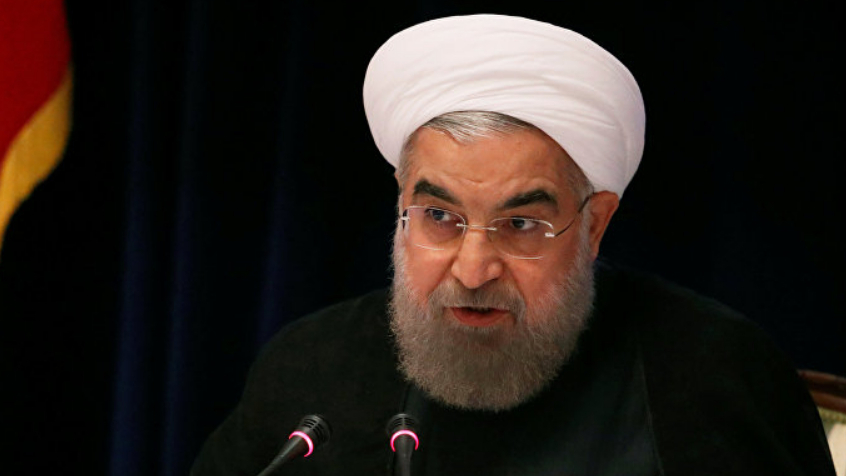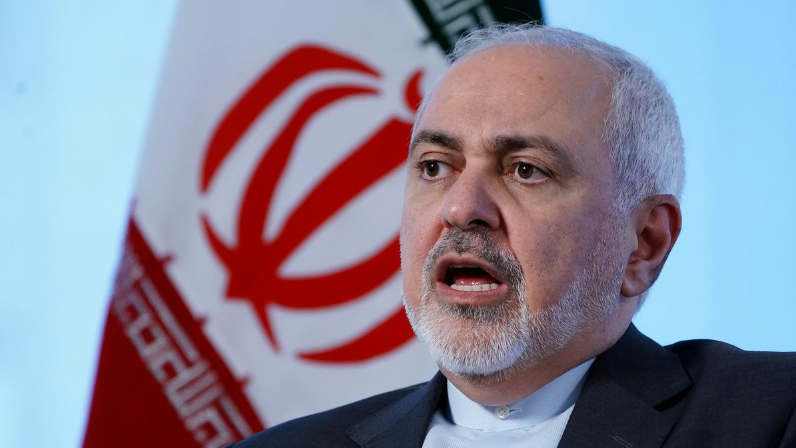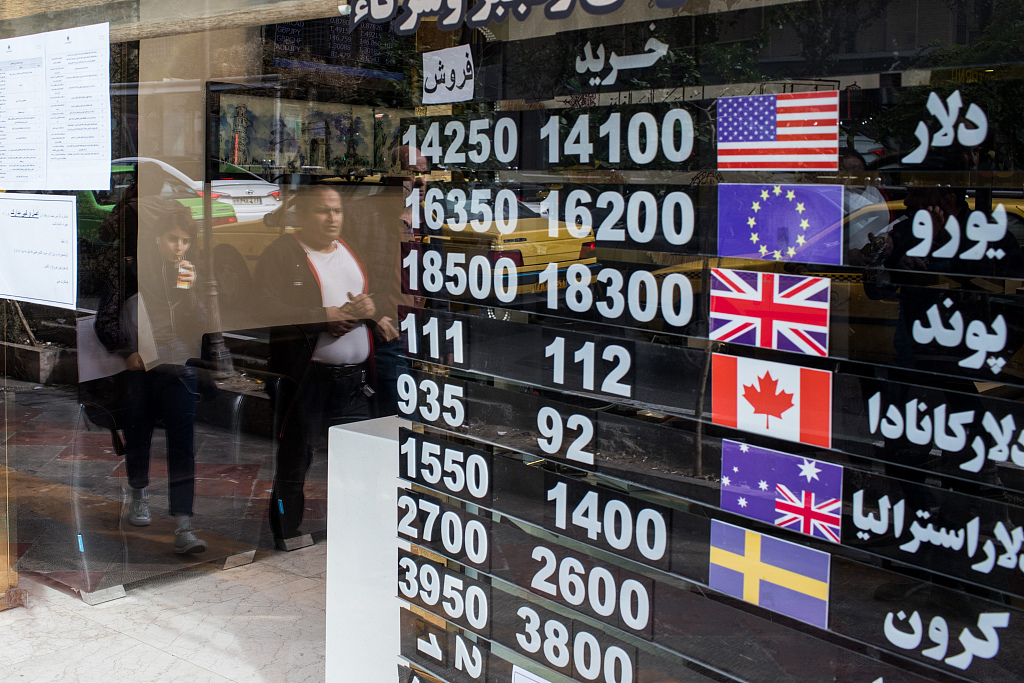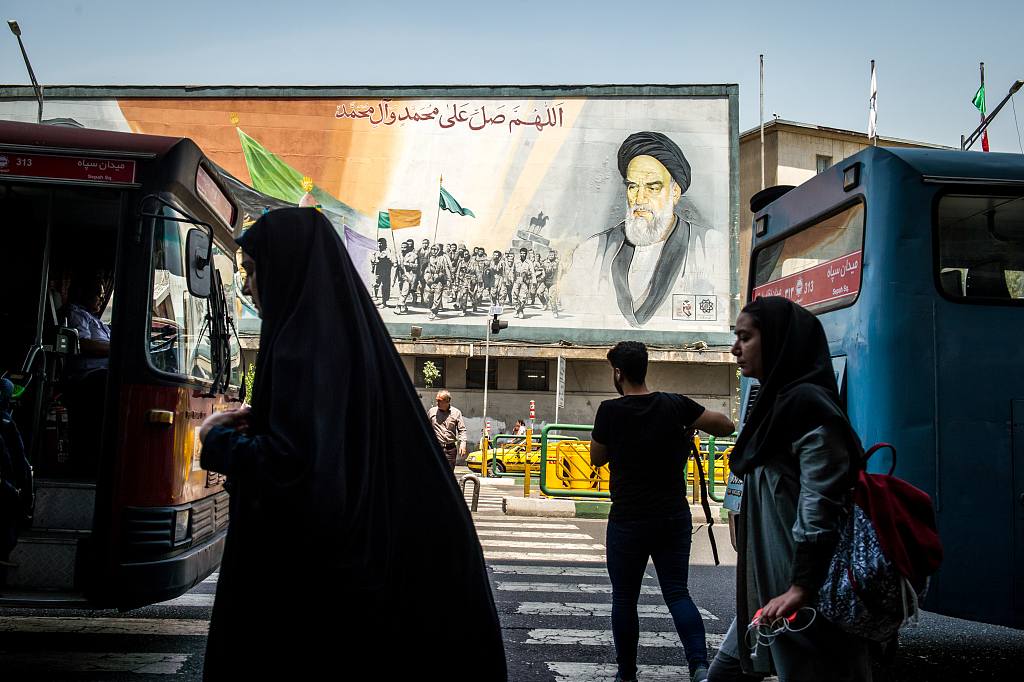
North America
10:51, 21-May-2019
Rouhani: 'Situation' not suitable for talks, resistance is only choice
Updated
14:15, 21-May-2019
CGTN
00:49

Iranian President Hassan Rouhani said late on Monday that all Iranian officials have reached a consensus to withstand the U.S. and the policy of sanctions, the Islamic Rebulic News Agency (IRNA) reported.
"If we walked away from the Joint Comprehensive Plan of Action (JCPOA) with the U.S. provocative acts, then, in addition to the U.S., the UN and (the) world would also impose sanctions on us. I favor talks and diplomacy but under current conditions, I do not accept it, as today situation is not suitable for talks and our choice is resistance only,” Rouhani said, cited by the IRNA.
On Sunday, Trump tweeted: "If Iran wants to fight, that will be the official end of Iran. Never threaten the United States again!"
Earlier on Monday, the U.S. president told reporters that there are no signs Iran is preparing actions against U.S. interests in the Middle East, adding that any provocation by Tehran will be met "with great force."
He also said that he would be ready to conduct negotiations with Tehran if Iranian officials make the initial call.
Iranian Foreign Minister Mohammad Javad Zarif replied on his Twitter account "Never threaten an Iranian. Try respect – it works!"

Iran's Foreign Minister Mohammad Javad Zarif sits for an interview with Reuters in New York, New York, U.S., April 24, 2019. /Reuters Photo
Iran's Foreign Minister Mohammad Javad Zarif sits for an interview with Reuters in New York, New York, U.S., April 24, 2019. /Reuters Photo
Zarif, who was educated in the United States, actually praised Trump for earlier remarks seen as cautioning hawks in his administration who were encouraging conflict.
The president "rightly deplores 'military-industrial complex' pushing U.S. #ForeverWars," Zarif wrote on Twitter.
But he said Trump had allowed a "B-team" of aides led by National Security Advisor John Bolton to "trash diplomacy." He accused them of "milking despotic butchers via massive arms sales," an apparent reference to Iran's main regional foe, Saudi Arabia, Washington's biggest arms buyer.
Trump has tightened economic sanctions against Iran, and his administration says it has built up the U.S. military presence in the region. It accuses Iran of posing threats to U.S. troops and interests. Tehran has denied this, describing U.S. moves as "psychological warfare" and a "political game."
Britain told Iran on Monday not to underestimate the resolve of the United States, warning that if American interests were attacked then the Trump administration would retaliate.
Nuclear deal
Quoting an official at the Natanz enrichment plant, the semi-official Tasnim said Iran was accelerating the rate of production at which it refines uranium to 3.67 percent fissile purity, suitable for civilian nuclear power generation.
The move came two weeks after Iran, acting after Trump reimposed sanctions aimed at blocking all Iranian oil exports to cripple its economy, declared it would scale back some commitments under the accord it signed with six world powers.
Under the 2015 deal, the Islamic Republic was allowed to stockpile a maximum of 300 kg of low-enriched uranium, and ship any excess out of the country for storage or sale.

An exchange rate board on a currency exchange store window, November 3, 2018. /VCG Photo
An exchange rate board on a currency exchange store window, November 3, 2018. /VCG Photo
Iran said this month that cap no longer applied in response to the unilateral U.S. withdrawal from the deal.
Trump has condemned the accord, signed by his predecessor Barack Obama, as flawed for not being permanent and for not covering Iran's ballistic missile program and role in conflicts around the Middle East.
Behrouz Kamalvandi, the spokesman for the Atomic Energy Organization of Iran, told Tasnim that the U.N. atomic watchdog, the International Atomic Energy Agency (IAEA), had been notified about the move to step up the production rate of low-enriched uranium fourfold.
"It won't be long until we pass the 300-kg limit of low enriched uranium. So it's better for the other side to do what it's necessary to be done," Kamalvandi said, alluding to steps by other powers to shield Iran's economy from U.S. sanctions.
He said the acceleration of Iran's centrifuge enrichment machines remained within the bounds of the nuclear deal, and Tehran had no intention to exit the accord.
UN: 'Lower rhetoric, lower threshold of action'
UN Secretary-General Antonio Guterres is very concerned about the rising rhetoric between Iran and the United States and warns that any action by either nation could be misinterpreted in a "very volatile region," his spokesperson said on Monday.
"We are concerned about the rising rhetoric," Spokesperson Stephane Dujarric replied when asked about the increasingly heated exchange of comments between Tehran and Washington. "We saw the rocket launch that seemed to be aimed at the U.S. Embassy in Iraq, in Baghdad. That is also a concern."

A political mural depicting Ruhollah Khomeini, founder of the Islamic Republic of Iran, in Tehran, Iran, May 18, 2019. /VCG Photo
A political mural depicting Ruhollah Khomeini, founder of the Islamic Republic of Iran, in Tehran, Iran, May 18, 2019. /VCG Photo
Dujarric was asked about Iraq's concern that it could be caught in the middle of fighting between Iran and the United States.
"It is a very volatile region," he told correspondents at a regular briefing.
"We would ask all parties to lower the rhetoric and to lower the threshold of action as well," Dujarric said.
Iran's ambassador to the United Nations, Majid Takht-Ravanchi, sent a letter to the UN chief on Monday, saying, "Iran will never choose war as an option in pursuing its foreign policy, but if war is imposed on us, Iran will vigorously exercise its inherent right to self-defense in order to defend its nation and to secure its interests."
(With inputs from agencies)
(Cover: File photo of Iranian President Hassan Rouhani. /Reuters Photo)

SITEMAP
Copyright © 2018 CGTN. Beijing ICP prepared NO.16065310-3
Copyright © 2018 CGTN. Beijing ICP prepared NO.16065310-3